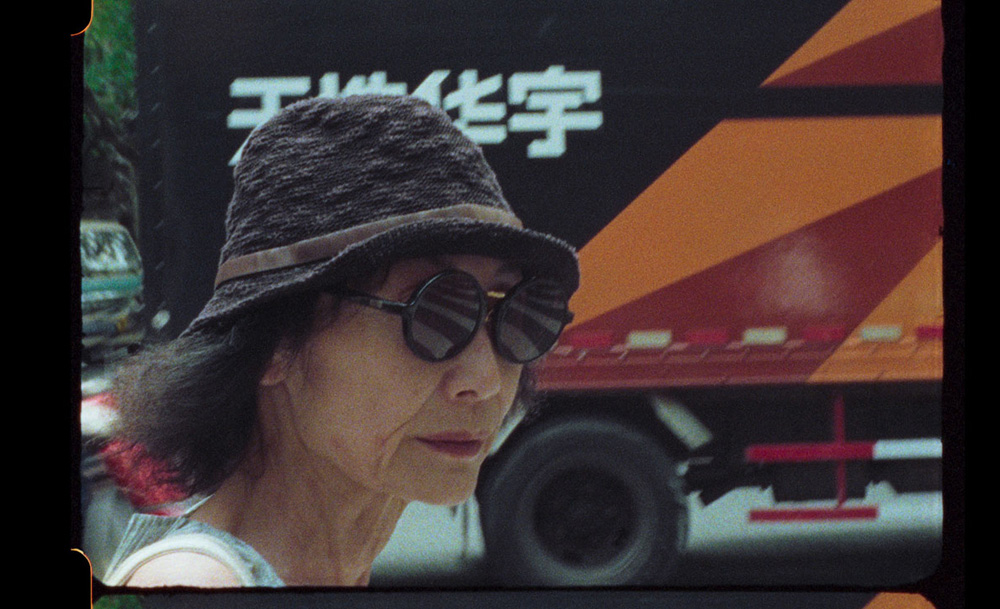“I remember 20 cameras and yours was different,” Wu’er Kaixi tells Christine Choy in “The Exiles,” recalling how she accompanied him to Chicago where some of the Chinese dissidents that had protested the government in Tiananmen Square and were met with the full force of the army in June of 1989 were regrouping and getting the word out to American media. You could definitely say that Choy stood out — believing she was called to the Windy City strictly because she actually had a camera and could speak Mandarin rather than for any skill she had, even though she was an Oscar-nominated filmmaker at that point for co-directing “Who Killed Vincent Chin?”— and she still does, pictured in Violet Columbus and Ben Klein’s irresistible doc chain-smoking and altogether uninhibited, tossing out opinions like grenades.
If Choy lacked professional polish and was far less well-funded than the news crews she was standing in between 30 years ago, what she captured has no doubt exceeded the value of what her peers did when revisited today, a happy accident of sorts when Columbus and Klein, who were students of the filmmaker at NYU decided to profile their professor at Tisch. Early in “The Exiles,” Choy laughs when she looks at the occasion of a film as free therapy, marveling as she is made to reflect on her past work, “I don’t even need to pay a shrink to do this.” But much of the analysis is saved for her unfinished project about the Tiananmen Square Massacre, which she never could complete when there was no one around to fund the project. Viewing the raw footage now comes with the hindsight of the global economic power that China has become and the human rights abuses that persist, envisioning the pro-Democracy student protests as one of the last great stands against a government that has only seemed to grow more comfortable with eliminating critical voices in the years since.
Choy admits to being taken aback on her more recent visits to the mainland that the most recent generation has no memory of the Tiananmen Square Massacre, which state-run media reported had no casualties then and schools no longer teach now at all, leaving the testimony that she shot with Wan Runnan, the CEO of the successful computer company Sitong that helped bankroll the protests in China, and then-student Wu’er and poli-sci specialist Yan Jiaqi as some of the last remaining evidence of what happened there. Beyond restoring the 50 rolls of 16mm to its original glory, Columbus and Klein join Choy as she meets with the trio, who have since resettled abroad, all appearing to have adjusted to life elsewhere yet nonetheless cut off from relatives and likely never able to go home again. It’s poignant when Choy acknowledges that sacrifice will be true for herself as well, given what role she has in making “The Exiles,” although one imagines that she’ll wear any ban as a badge of honor.
Taking after the rebellious Choy, “The Exiles” meets the attempted erasure of history with voices too loud to be drowned out, invigoratingly brisk and candid with Choy’s behind-the-scenes exploits expressively reimagined once more in animation by Lewie and Noah Kloster as they were in the short “Legal Smuggling,” and the present-day interviews with Yan, Wu’er and Wan all as passionate now as when Choy initially spoke to them. At just an hour-and-a-half, the film may feel as if it’s just skimming the surface, especially when Choy’s fascinating footage of the dissidents coming to America has to compete with four compelling individual stories, but when Wu’er says the intention of the protests was always to open up a dialogue with China, the engaging doc is bound to open up conversations and becomes undeniable, not only in what’s been preserved for the historical record, but in terms of the people involved who offer testimony of what they witnessed at unthinkable personal expense and are only emboldened by those who would like it all to disappear.
“The Exiles” will open theatrically on December 9th in San Francisco at the Roxie and be released nationally on January 10th on VOD.




